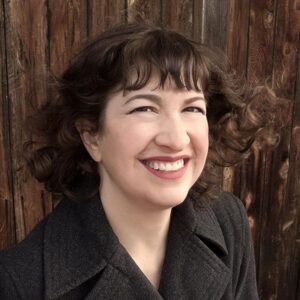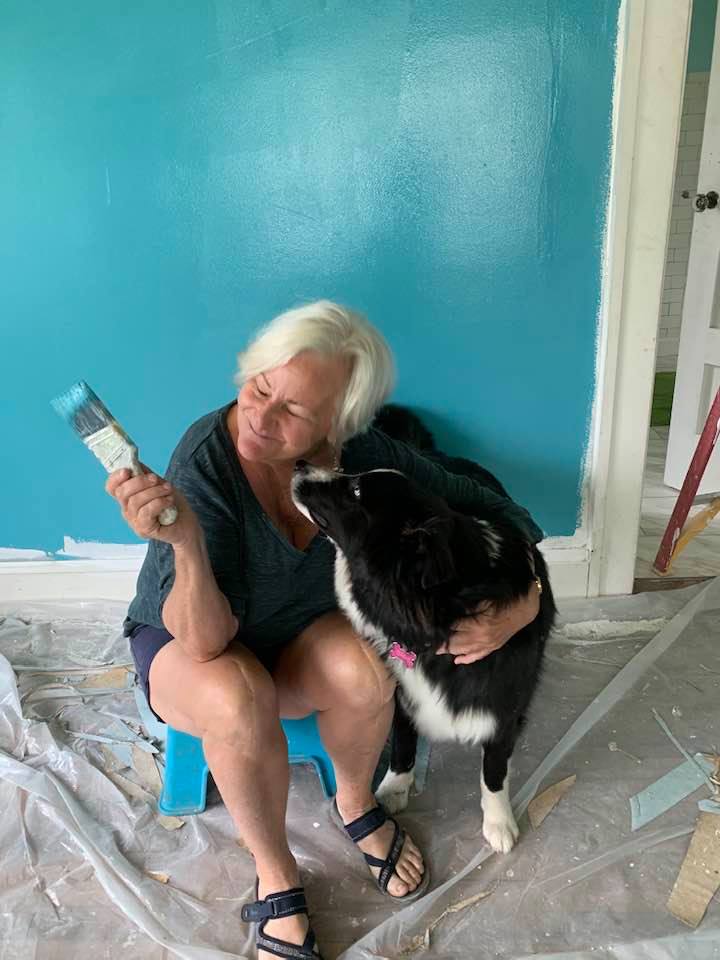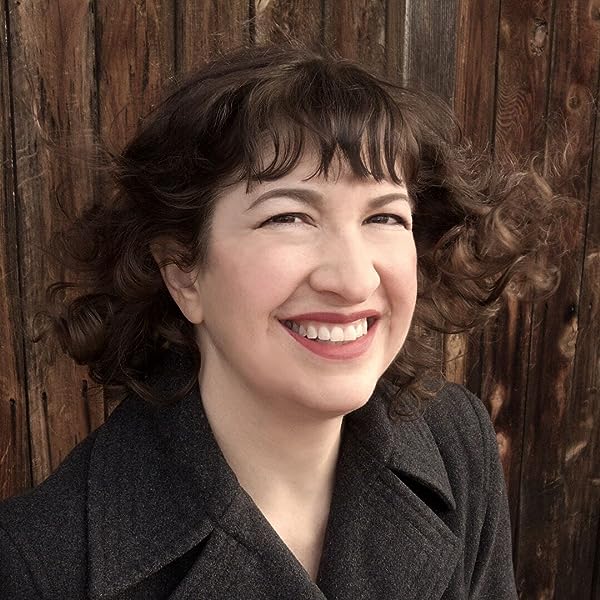On saving each other, luck and quantum entanglement
An interview with Colorado author Erika Krouse
An interview with Colorado author Erika Krouse
Erika Krouse, 55, was born in Yonkers, N.Y. and lives now along Colorado’s Front Range. Her writing has appeared in many publications, including The New Yorker, The Atlantic, Ploughshares, Glimmer Train and Story. Since 2008, she has taught at the Lighthouse Writers Workshop in Denver, where she is a Book Project mentor and winner of the Lighthouse Beacon Award. She has written four books, including the memoir Tell Me Everything: The Story of a Private Investigation, winner of the 2023 Edgar Award for Best Crime Fact and the 2023 Colorado Book Award for Best Creative Nonfiction. Her 2001 short story collection Come Up and See Me Sometime was a New York Times Notable Book and won the Paterson Fiction Award. Her 2015 novel, Contenders, was a finalist for the VCU Cabell First Novelist Award. Her latest book, Save Me, Stranger (Flatiron Books), is releasing this month. See our review here.

Erika Krouse
RMR: Erika, I’ve loved reading these stories. The story “Save Me, Stranger” was a continuous revelation to me, like a set of Russian nested dolls, opening up with more and more perspectives. This story gave me hope. Life isn’t always pretty but we can effect change, all of us, in our own ways. Can you tell me a bit about the impetus for the story?
EK: I’m so glad and thank you! “Save Me, Stranger” was the first story I had written in about a decade. I wrote it shortly after my friend died by suicide, one day before we were scheduled to meet up. In my grief-fueled hubris, I couldn’t help but think that there might have been something I could have done to somehow nudge tragedy off course. I think we’re always one move away from potentially saving each other, but we rarely know what that move is. I wrote that story to cope, and then I got fascinated with the theme and needed more stories to explore it.
RMR: I was thinking of the role chance plays in your life. You got hired as a private investigator— even though you had no official training in that field—by a lawyer you happened to bump into in a bookstore who found himself confiding in you. (Krouse’s work as a PI for that lawyer is visited in her memoir, Tell Me Everything.) How serendipitous does your own life seem to you? Can you give some examples? How do they play into your writing, these chances?
EK: I think chances are about luck, and I’m both the luckiest and unluckiest person on earth. It was extremely lucky that I bumped into the lawyer who hired me as a PI for a historical lawsuit … and extremely unlucky that it was a sexual assault case, given my own history with sexual violence. It’s always like that. In Las Vegas, I once won twice in the same session of bingo (people yelled at me for “cheating”), but I couldn’t collect the money because I had such bad food poisoning. Great luck, terrible luck.
RMR: You’ve mentioned that you have the kind of face, the demeanor, that makes people feel safe. Complete strangers will confide in you. Are you happy people feel comfortable opening up to you or does it sometimes feel like a burden, as in, hey, I just want to sit in this café and drink my coffee in peace?
EK: I don’t drink coffee, so it’s totally cool with me. There was only one time I regretted it, when the person cutting my hair started talking about her impending divorce and got so upset that she gave me a mullet and I had to wear a hat for six months. But the rest of the time, I really like it. I like connecting with people.
RMR: I’m thinking of the role of second chances in our lives, particularly in light of your story, “Eat My Moose.” That phrase, “Eat My Moose,” seems like a koan to me, although I’m not sure what it means. In the story, those are the last words a dying man utters to another character. There is literally a winter’s worth of butchered moose hanging in his shed that he won’t be able to eat because he’s going to be dead very soon. We all hope we’ll be able to eat our own moose, but sometimes we can’t. I’m struggling here … throw me a bone. What does “Eat My Moose” mean to you? Am I breaking any writer’s etiquette by pressing you like this?
EK: Ha! I think of the moose-eating as an evolving parable throughout the story. The main characters are Alaska isolationists who initially seek to cancel out their violent military pasts via rugged self-reliance. But no amount of isolation can keep us from changing each other, creating messes that someone else needs to clean up, right? It’s like we’re eternally locked in a daisy chain of quantum entanglement and human responsibility and unfinished business. Eat my moose. It’s also funny to say.
RMR: I found these stories full of surprises. I also recoiled a little because they were so honest and visceral. I wasn’t prepared for the intensity of them, but I was so grateful too. For instance, in “North of Dodge” the protagonist who steals her uncle’s car and runs away ends up driving an ice cream truck for a living. In the morning, as she’s waiting to get launched on her route, she notices the slaughterhouse across the field. “At the windowless slaughterhouse … chain workers slumped across the yard toward the smell of manure. Sometimes the cows screamed. Their voices sounded hoarse, as if it were their first time screaming, pleading for their version of God.” I felt terrible for the cows and I think you did too. You strike me as someone who goes through life with an open heart, pierced by beauty and pain and love. Is this true? And if so, how do you protect yourself? Do you protect yourself?
EK: That’s the curse, right? You can’t write about life if you protect yourself against it. I’m no role model for keeping healthy boundaries (or for anything else). But I think there’s also a certain brand of courage that comes from making yourself vulnerable and taking risks. I think this is true for everyone, not just writers.
RMR: These stories have touched me in a different way than Come Up and See Me Sometime. I loved that book and thought it was very funny, but those stories didn’t break my heart. These stories did break my heart. I don’t mean they were sentimental. I can see how you actively push against that in your writing, but there is a different quality here. It’s like you’re not so worried about appearing smart. You’re more inside the story. Or perhaps you’re different now. What is it? Or is it that I’m just in a different place in my own life?
Come Up and See Me Sometime was my first book, and I’m very glad to hear the stories have improved since I started out. That’s what I’m trying for. I try to kick my ego aside so I can write better. It helps that, by the time you’re on your fourth book, your ego is pretty much disintegrated. It’s like wearing a sweater that’s more holes than sweater so why bother to put it on? It’s still an ongoing effort, though. I hope my next book is better than this one, and on and on.
RMR: It’s “cold” reading these stories. I mean, the weather in those pages. Is that because you live in Colorado? How much of a role does the weather and setting play in your writing?
EK: I’m always cold! My friend has a sweatshirt that says, “Always Cold” and I want to steal it. I think that’s part of why I wanted to write about the coldest town on earth in the story, “The Pole of Cold;” I’m amazed at the extremes we call home. Colorado does influence my writing a lot, our fires and floods and snow and hurricane-force gales. I think our weather reflects our personalities, and affects them, too. Weather has changed me as a person—do you feel the same way?
RMR: Yes. I like big weather. Snow days. Blizzards. When life seems out of our hands. Speaking of the big picture, do you have any advice for young writers?
EK: Young writers: please read a lot. Learn grammar. Travel. Talk to people. Ask questions. Stop staring at your little rectangle. Work harder and more and longer than everyone else. Don’t let other people define you. Don’t do drugs. Don’t listen to me.
RMR: Anything else you want to say?
EK: Thank you!
D’Arcy Fallon, an award-winning former Colorado Springs Gazette reporter, lives in Springfield, Ohio. A professor emerita of Wittenberg University, she is the author of a memoir, So Late, So Soon (Hawthorne Books), about living in a religious commune in the ‘70s. Her work appears at https://darcyfallon.substack.com.
Click here for more from D'Arcy Fallon.

